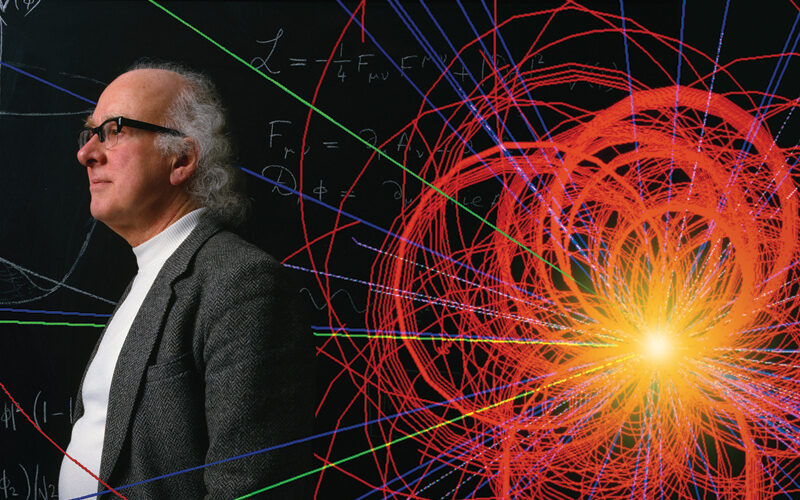The Atlas Experiment is an international collaborative success story. In July 2008, scientists around the world were expecting terabytes of collision data to be transmitted to labs around the world from the Large Hadron Collider (LHC) Experiment in Geneva, Switzerland. The data was to be used to simulate collision events and analyze the myriad possibilities that might help to confirm the existence of Higgs boson – the “God particle” – the missing link in the Standard Model of particle physics.
The initial data expectations were a mere fraction of the actual data being conveyed, but four years later, on July 4, 2012, the discovery was confirmed. Scientists are 99.999% sure they have found a new particle – a momentous day for science, and for ORION. Its network figured BIG in the outcomes.
Local researchers working with BIG data
“Research now assumes big data intensive work,” says Dr. Robert Orr, Professor of High Energy Physics, University of Toronto (U of T). “Today even data summaries can be 100 terabytes in size or more. LHC produced two petabytes or more of data just this year. When it comes fully up to speed, we can anticipate up to three petabytes of data being transmitted and shared over the various world sites.”
Dr. Orr led the Canadian team of this global collaboration at U of T, operating the sophisticated detector known as ATLAS at the CERN LHC in Switzerland. A 7,000 tonne LHC assembly, built in part at U of T, ATLAS detected and measured the energy of particles emerging from the 40 million proton collisions per second taking place inside it – energy fluctuations that were thought to possibly indicate fragments of the Higgs boson particle. The Canadian ATLAS computing sites, located at TRIUMF, SciNet, WestGrid and CLUMEQ, handled upwards of 10 per cent of the inconceivable amount of data generated by the LHC. They compiled, analyzed and derived findings, then shared the results around the globe.
ORION’s ultra-fast, high capacity, high performance optical research network helped to enable the unprecedented collaboration spanning 38 countries and 174 institutions, and transported the ATLAS data to Tier 1 and 2 sites around the world. In Dr. Orr’s view, the ORION network is “extremely reliable… something like switching your lights on. It works.”
Toronto’s SciNet is Canada’s largest supercomputer centre and facilitated most IT requirements for the LHC and ATLAS experiments. They relied on ORION to help make that happen.
The data was of such a magnitude that it could not possibly be stored and analyzed at a single site. Moving that amount of data, making it accessible and maintaining its integrity was critical. It also had to be accessible and adaptable in nearly real time, from remote locations anywhere in the world. “The ORION system is so good,” say SciNet technical leaders, “that the only time you would notice it is if it did not work.”
High Performance Computing (HPC)
Dr. Richard Teuscher, research scientist at the Canadian Institute for Particle Physics and Professor of Physics at U of T, was the Canadian lead for the ATLAS Experiment at CERN Switzerland. He managed the U of T research team of graduate and undergraduate students doing Higgs searches. Students and thousands of others analyzed the enormous amount of data produced and created ATLAS event simulations – powered by high performance computing (HPC), a central tool in the ATLAS Experiment.
HPC allows unfathomable amounts of data to be processed at lightning speed. In the ATLAS Experiment, it enabled users to get results that would have once taken years – in a matter of hours. It also enabled researchers to release the data in just two weeks and to be accepted for publication in just 24 hours – unheard of in the history of science. “We could not have had this discovery without the HPC computing grid” said Teuscher.
There were 1 billion LHC events produced in 2012, and 38 countries collaborating on ATLAS.
BIG data: A BIG future
The need to process BIG data through networks like ORION will only grow. BIG data research is expanding at an incredible rate. ATLAS and Canada’s role in the LHC experiment demonstrates our ability to work at that level.The ORION network is a critical technology that will allow Canada to be competitive in leading edge science innovation on the global stage.
LHC shuts down in early 2013 for refurbishing and will restart in 2014. Data generation at that time is projected to be 100 times greater.

